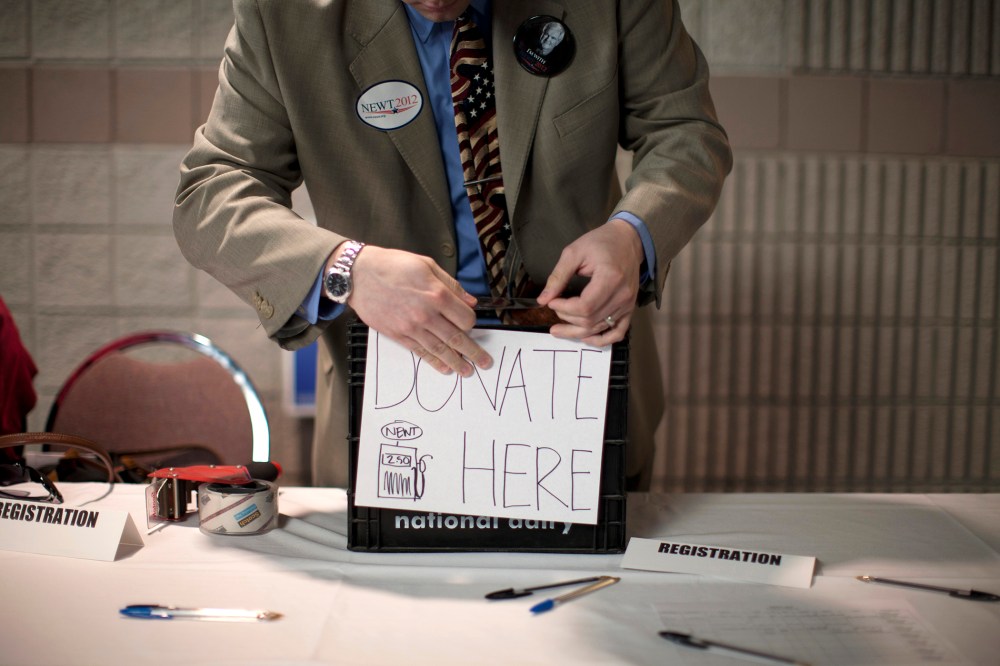Donald Trump and Jeb Bush flung attacks at each other in this week’s presidential debate about who’s bought and sold by big donors, but they fell far short of offering solutions to the problem. Until they do, voter cynicism about our country’s political system will only deepen.
In the most heated exchange, debate moderator Jake Tapper asked Bush, “Mr. Trump has repeatedly said that the $100 million you’ve raised for your campaign makes you a puppet for your donors. Are you?” A battle between the two followed, in which they fought over who was above the influence of special interests and big donors. Ben Carson interjected to say he won’t “lick the boots of billionaires.”
%22In%20last%20night%E2%80%99s%20primetime%20debate%2C%20no%20candidate%20said%20what%20he%20or%20she%20would%20do%20to%20address%20the%20broken%20system%20they%20like%20to%20criticize.%22′
It’s no surprise. Poll after poll shows a broad, bipartisan majority of the American people are angry about our broken system and want politicians who’ll fight against the status quo.
A new Washington Post/ABC News poll found that two-thirds of Americans think the country’s political system is dysfunctional, while a recent Bloomberg News/Des Moines Register poll of Iowa caucus-goers found that 91% of Republicans and 94% of Democrats are unsatisfied or “mad as hell” about money in politics.
In June, a New York Times/CBS poll found that 85% of Americans believe we need fundamental changes to our campaign finance system, while a poll from the Wall Street Journal and NBC found that money in politics is a top concern for voters ahead of 2016.
But in last night’s primetime debate, no candidate said what he or she would do to address the broken system they like to criticize, whether on the debate stage or on the campaign trail.
RELATED: Fiorina super PAC tests legal limits of campaign coordination
If any of the candidates want to break through voter cynicism about politics, they have to offer bold solutions to the problem.
Recently, Democratic front-runner Hillary Clinton announced a detailed reform platform, announcing that, “our democracy should be about expanding the franchise, not charging an entrance fee.” With Clinton’s announcement, every major Democratic candidate including Bernie Sanders and Martin O’Malley has announced support for small-donor public financing, as well as efforts to overturn the Supreme Court decision in Citizens United. Harvard professor Lawrence Lessig is running on the sole platform of reforming the way our elections are financed.
Clinton’s plan calls for a small-donor matching fund program for congressional and presidential campaigns, increased transparency of political spending, and for a reversal of Citizens United. It’s a strong, bold plan and mirrors the “Fighting Big Money, Empowering People” agenda released in July and supported by more than a dozen democracy reform groups.

Despite talking regularly about the problem of money’s influence in politics, few Republican presidential candidates have offered solutions beyond small steps that amount to a band-aid for a broken leg.











